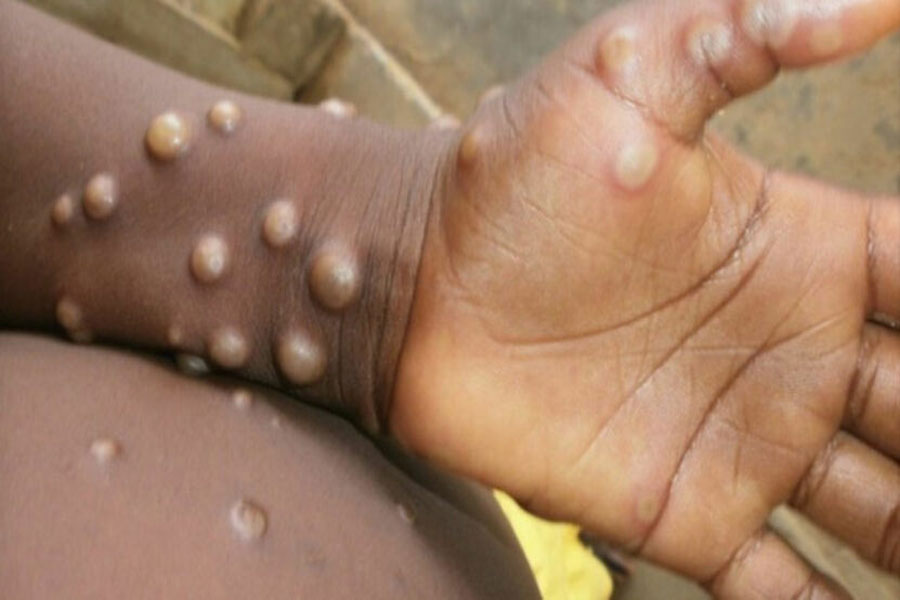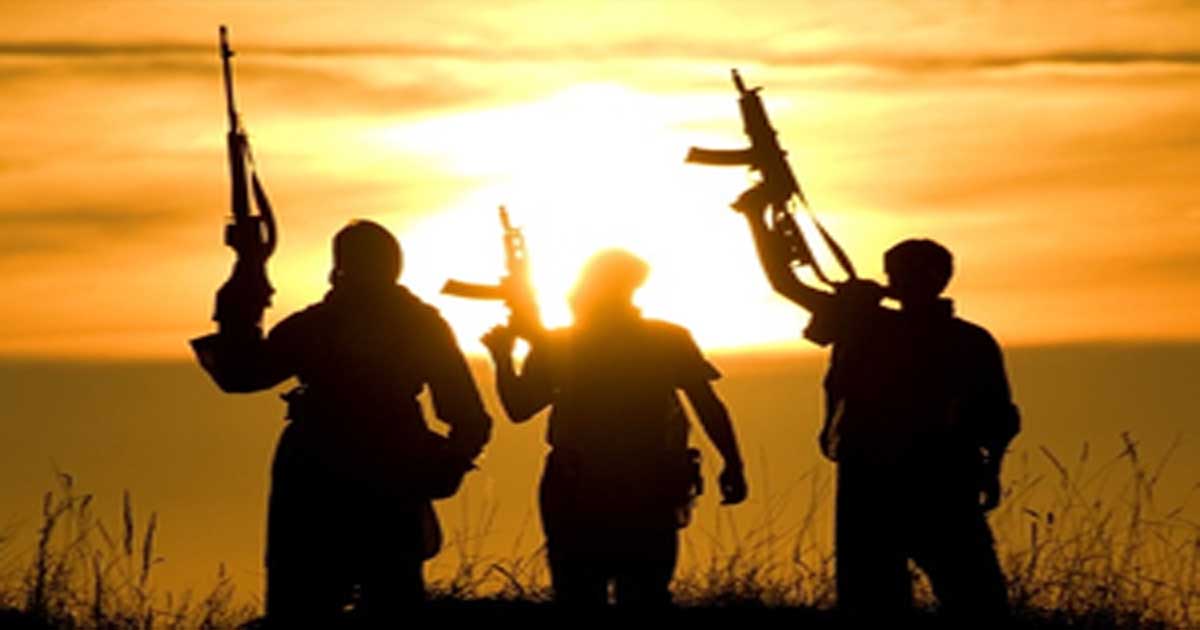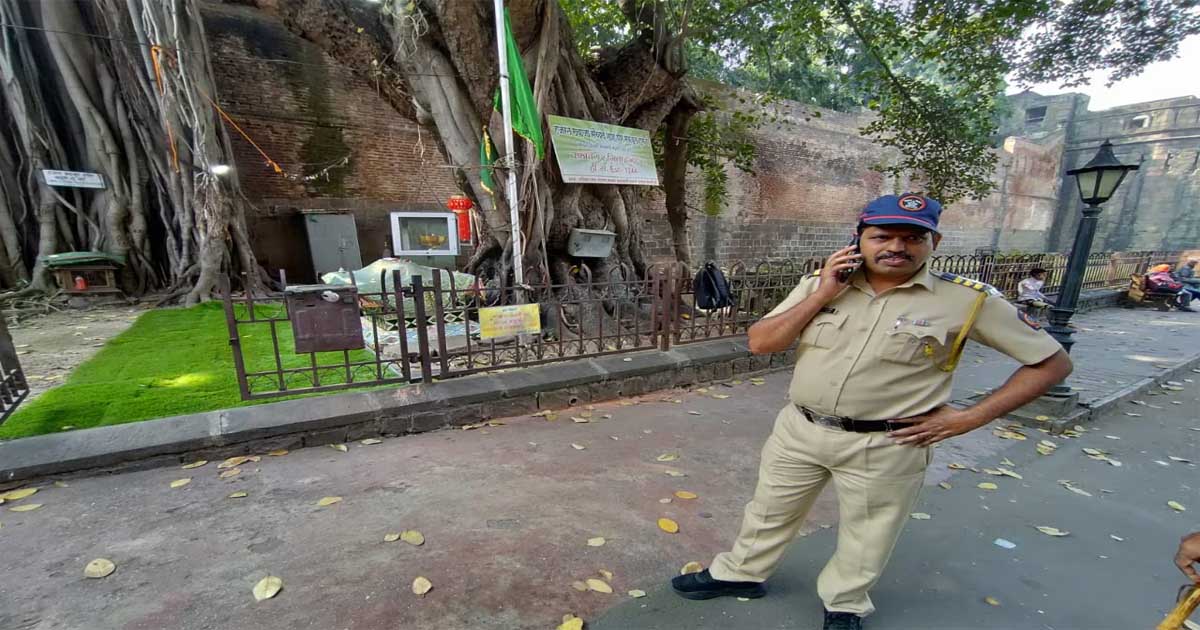General
Health Ministry issues guidelines for monkeypox management

A day ater India registered its first monkeypox case, the Union Health Ministry on Friday issued guidelines for the management of the disease.
The first laboratory confirmed case of monkeypox was reported from Kerala’s Kollam district after which the Union Health Ministry had rushed a multi-disciplinary team of experts on Thursday.
Surveillance and rapid identification of new cases is critical for outbreak containment, the guidelines said, adding that during human monkeypox outbreaks, close contact with infected persons is the most significant risk factor for monkeypox virus infection.
It added further that health workers and household members are at a greater risk of infection. Health workers caring for patients with suspected or confirmed monkeypox virus infection, or handling specimens from them, should implement standard infection control and precautions.
International passengers should also avoid contact with contaminated materials used by sick people such as clothing, bedding or materials used in healthcare settings, or that came into contact with infected animals, the guidelines said.
In addition, people who develop symptoms suggestive of monkeypox like fever and skin rash and were in an area where monkeypox has been reported or had come in contact with a person who might have monkeypox have been advised to immediately consult the nearest health facility.
“The key measures that can be taken to prevent infection with monkeypox virus is to isolate infected patients from others who could be at risk for infection. Avoid contact with any materials, such as bedding, that has been in contact with a patient of monkeypox. Practice good hand hygiene after contact with infected persons,” the guidelines said.
About mode of transmission, the guidelines said that human-to-human transmission is known to occur primarily through large respiratory droplets generally requiring a prolonged close contact. It can also be transmitted through direct contact with body fluids or lesion material, and indirect contact with lesion material, such as through contaminated clothing or linens of an infected person, it added.
The guidelines further added that animal-to-human transmission may occur by bite or scratch of infected animals like small mammals including rodents (rats, squirrels) and non-human primates (monkeys, apes) or through bush meat preparation.
Maharashtra
Mumbai drivers should be given 25% discount on purchase and conversion of electric vehicles: Raees Shaikh

Mumbai: Samajwadi Party MLA from Bhiwandi East Raees Shaikh has written a letter to the state transport department on the draft Motor Vehicle Aggregators Rules, 2025, suggesting that drivers be given a 25 per cent subsidy on the cost of converting to an electric vehicle (EV) and it should be provided from the Driver Welfare Fund. The transport department had published the draft rules in this regard on October 9 and the last date for submission of suggestions and objections is October 26.
MLA Raees Shaikh said that to increase the income of drivers, the daily working hours limit should be increased, passengers should be given a fixed period to cancel the ride without being charged a fine, a government grievance redressal portal should be created, delay compensation should be given to passengers, medical and psychological tests of drivers should be conducted and regular testing of GPS should be done from funds.
Raees Shaikh, in a letter to the Transport Commissioner, suggested a phased transition to EVs to promote sustainable transport in draft Rules 18 and 20. Since drivers will not be able to bear the heavy costs, these changes will be possible if a 25% subsidy is provided through the Driver Welfare Fund. Raees Shaikh has suggested major changes in the ride cancellation policies under Rule 17. Passengers should be fined only if the driver comes within 200 meters of the pick-up point. In addition, passengers should be given a grace period of 2-3 minutes to cancel after booking without any fee.
The cost of fines due to software glitches or GPS errors should be borne by the aggregators, not the drivers. In case of vehicle malfunction, passengers should be refunded 10% of the fare if there is a delay beyond the permissible limit. MLA Raees Shaikh has recommended that there should be a government portal for complaints that are not resolved for more than seven days.
On driver welfare under Rule 10, Raees Shaikh has insisted that the cost of mandatory medical and psychological tests should be borne entirely by the aggregators. The limit of daily working hours should be increased to 14 hours. This will help increase the income of drivers.
Mumbai Press Exclusive News
TTP, ISKP, LeJ and others eye escalated attacks amid Pakistan army’s vulnerability

New Delhi, Oct 21: The Pakistan army has been caught in several embarrassing situations in recent times. While Operation Sindoor exposed the fault lines within the Pakistan army, it has suffered huge casualties at the hands of terrorist groups, all of which it created.
Pakistan may have entered into a delicate truce with the Taliban, but many question how long it will last. The rate at which the Tehreek-e-Taliban Pakistan (TTP) has created losses for the army has now emboldened other terror groups to take on the establishment.
Pakistan watchers and security experts say that there are many outfits which want the establishment thrown out. The TTP, Lashkar-e-Jhangvi (LeJ) and the Islamic State Khorasan Province (ISKP) want the rule of Islam established in Pakistan and the establishment to be overthrown.
The LeJ has focused largely on sectarian violence and has targeted the religious minority. It is not in the good books of the establishment, and in the near future, it could expand the scope of its attacks.
It has in the past carried out attacks against the Pakistan establishment, and the worry for Islamabad now is that the LeJ could go back to aligning either with the ISKP or TTP. The LeJ has, in the past, aligned with both these groups separately and hence a repeat of this cannot be ruled out. The ISKP, which was roped in Pakistan to fight against the TTP and Afghan Taliban, may not take a backseat due to the prevailing truce.
The ISKP had primarily joined hands with the Pakistan establishment to battle against the Afghan Taliban. However, if both sides have made peace, then the ISKP may back out. It is more likely that the ISKP may join hands with the LeJ rather than the TTP. The TTP is perceived to have the support of the Afghan Taliban.
Moreover, the ISKP was formed by former members of the TTP, and hence, the two coming together is difficult. Whether or not these groups come together or not, they are well aware of the weakness within the Pakistan army.
Intelligence Bureau officials say that, as per their assessment, even if these groups fight individually, they are in the days to come scale up attacks against the establishment. Pakistan is not even in a position to seek the support of the Lashkar-e-Tayiba or Jaish-e-Mohammad to battle against these groups. The Jaish-e-Mohammad has had a blow-hot, blow-cold relationship with the establishment. Further, if it is asked to fight against the TTP, the outfit may witness a split.
The Jaish-e-Mohammad is sympathetic towards both the Afghan Taliban and TTP and hence may not join the establishment. The case of the Lashkar-e-Tayiba is similar. While this outfit has never rebelled against the establishment, there was a chance of a major split when Pakistan was helping the US in the war in Afghanistan. Many cadres were unhappy with this stance and had even threatened to walk away and join the Taliban in Afghanistan.
While the threat of these groups spiralling out of control looms large, the Pakistan army has other problems, and that is in Balochistan.
The Baloch groups are driven by ethnic nationalism and secular separatism. They are seeking an independent proving. The Baloch groups in recent years have caused immense embarrassment to the Pakistan army. They have primarily targeted Chinese nationals and investments apart from the army. These groups too have realised that the army is weak and with Pakistan battling on many fronts, it would gear up for a bigger fight in Balochistan also.
Maharashtra
Controversy over offering prayers at Hazrat Khwaja Shah Dargah in Pune Saniwar Wada… Hindu organizations protest, tense situation, peace maintained, police arrangements increased.

Mumbai: In the ancient historical fort of Saniwar Wada area of Pune, Muslim women offered Friday prayers in the premises of the shrine of Hazrat Khwaja Syed Shah (may Allah be pleased with him), after which the police have registered a case against the three prayers and started an investigation. A conspiracy has started to give this incident a religious color. BJP MP Medha Kulkarni took out a front here to straighten out the area and demanded that a case be registered. The police have registered a case against the three unidentified women under pressure from Hindu organizations, while the situation in Pune has become extremely tense after this incident.
The video of the three worshippers offering prayers went viral on social media at the time, on this basis the police have registered a case, while in Pune, Medha Kulkarni said that offering prayers in Saniwar Wada will not be tolerated. After offering prayers in Saniwar Wada, politics has also started on it by giving it a Hindu-Muslim color. After the video went viral, a Hindu organization named Patis Pawan filed a written complaint and the police have registered a complaint on the complaint of Ishwar Babban Kode. The accused have not been arrested yet. There is a fear that Hindu organizations will once again stage a protest in Saniwar Wada. After rejecting the protest, sectarians led by Medha Kulkarni raised slogans of Jai Shri Ram and hoisted saffron flags on the dargah’s lattice. Not only that, Siddhi Karan was performed outside the premises and Gautam Buddha was sprayed. The situation is peaceful, but tension remains. This dargah is under the influence of the Waqf Board and now Hindu organizations have also started demanding the removal of this shrine. The police have issued an alert after this incident and have increased the arrangements.
-

 Crime3 years ago
Crime3 years agoClass 10 student jumps to death in Jaipur
-

 Maharashtra1 year ago
Maharashtra1 year agoMumbai Local Train Update: Central Railway’s New Timetable Comes Into Effect; Check Full List Of Revised Timings & Stations
-

 Maharashtra1 year ago
Maharashtra1 year agoMumbai To Go Toll-Free Tonight! Maharashtra Govt Announces Complete Toll Waiver For Light Motor Vehicles At All 5 Entry Points Of City
-

 Maharashtra1 year ago
Maharashtra1 year agoFalse photo of Imtiaz Jaleel’s rally, exposing the fooling conspiracy
-

 National News1 year ago
National News1 year agoMinistry of Railways rolls out Special Drive 4.0 with focus on digitisation, cleanliness, inclusiveness and grievance redressal
-

 Maharashtra11 months ago
Maharashtra11 months agoMaharashtra Elections 2024: Mumbai Metro & BEST Services Extended Till Midnight On Voting Day
-

 National News1 year ago
National News1 year agoJ&K: 4 Jawans Killed, 28 Injured After Bus Carrying BSF Personnel For Poll Duty Falls Into Gorge In Budgam; Terrifying Visuals Surface
-

 Crime1 year ago
Crime1 year agoBaba Siddique Murder: Mumbai Police Unable To Get Lawrence Bishnoi Custody Due To Home Ministry Order, Says Report


















